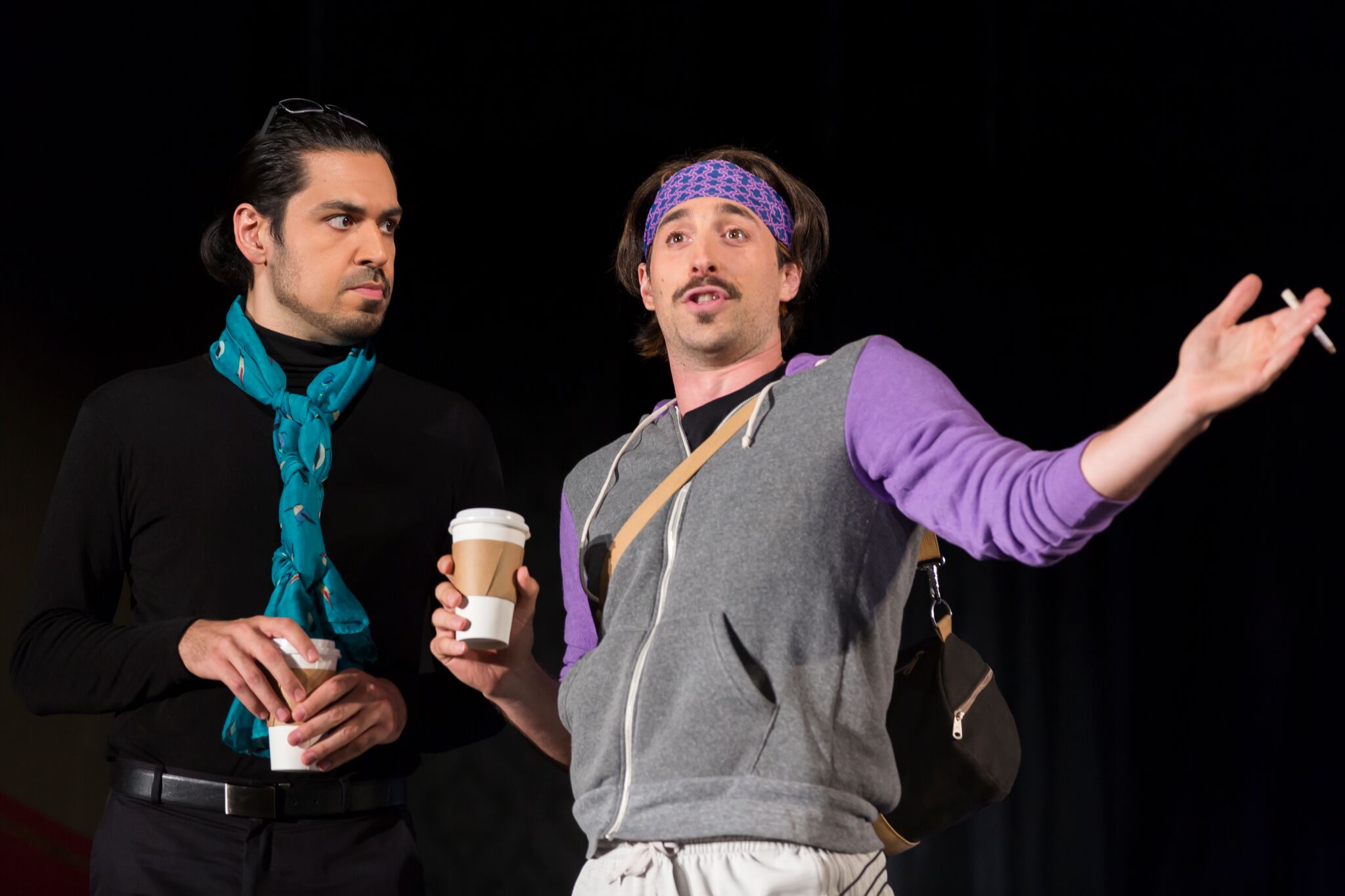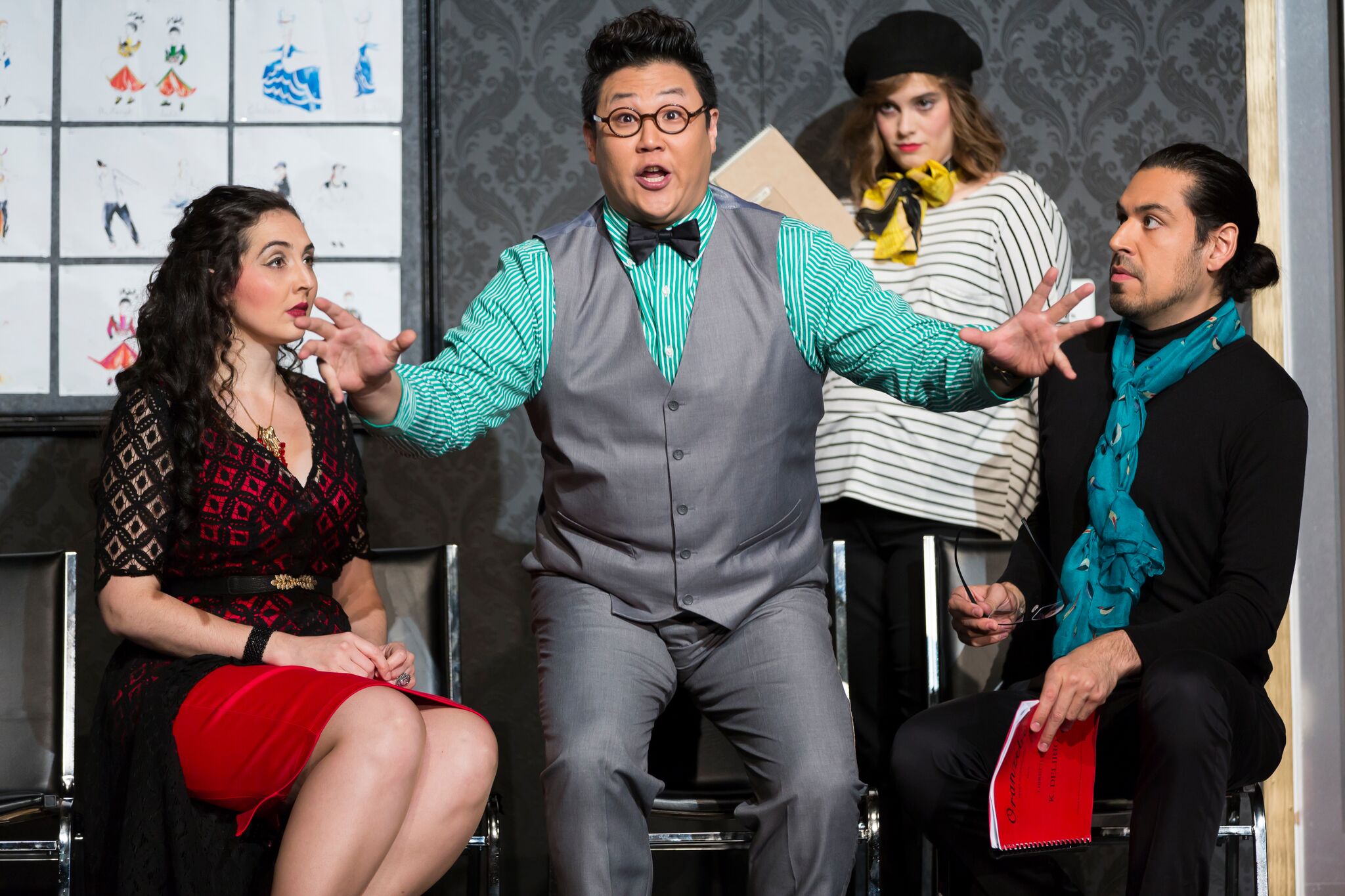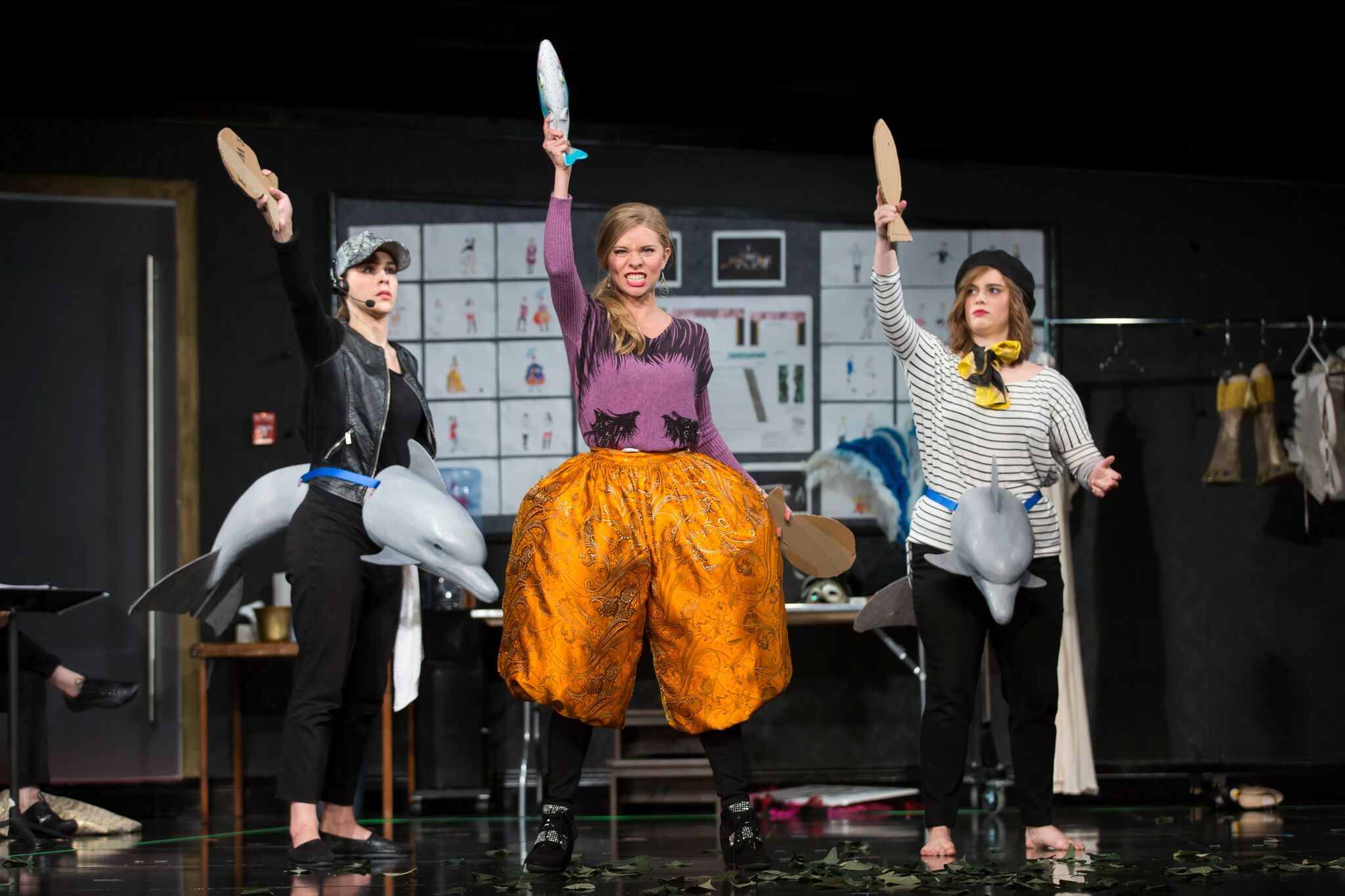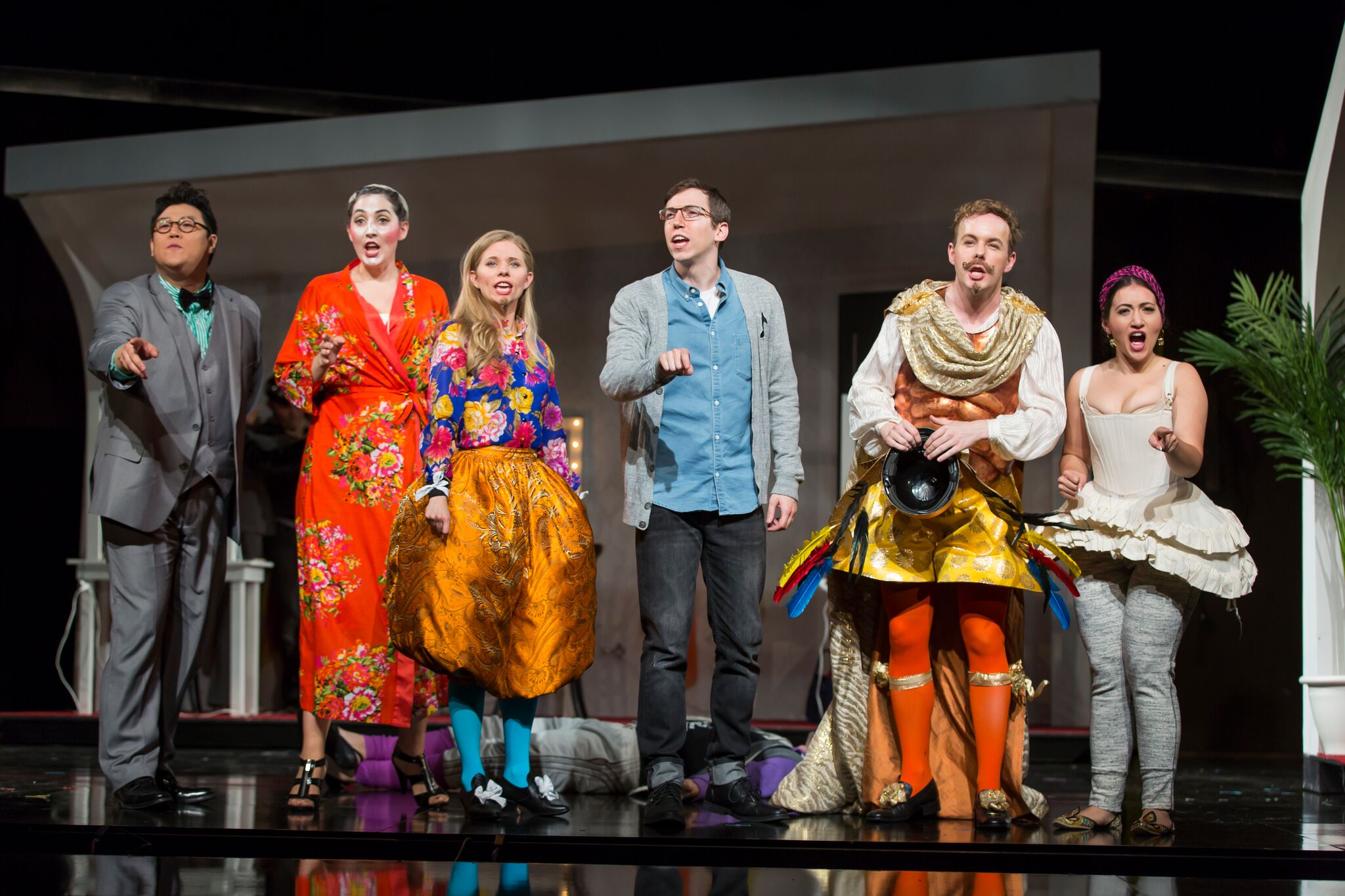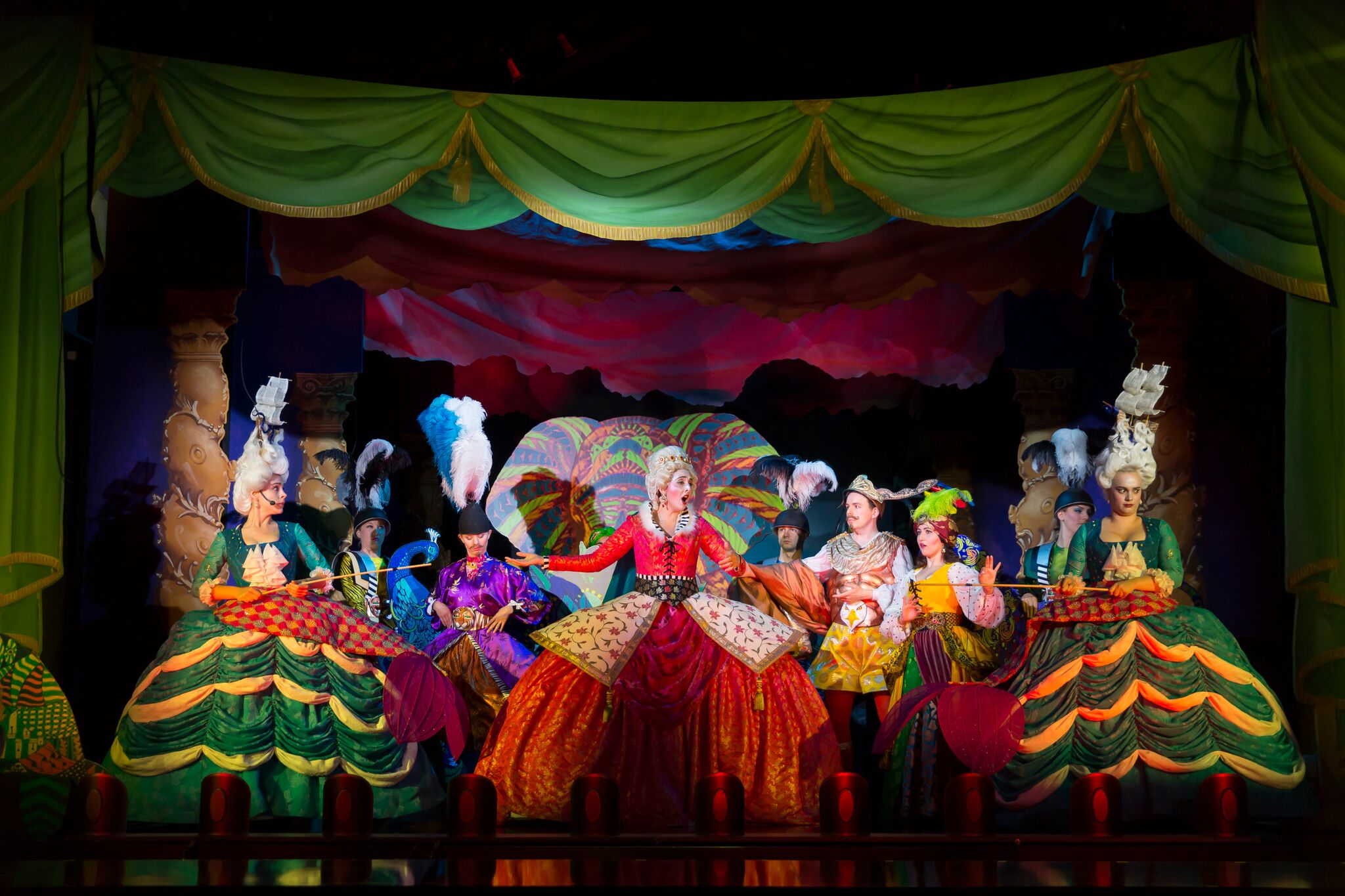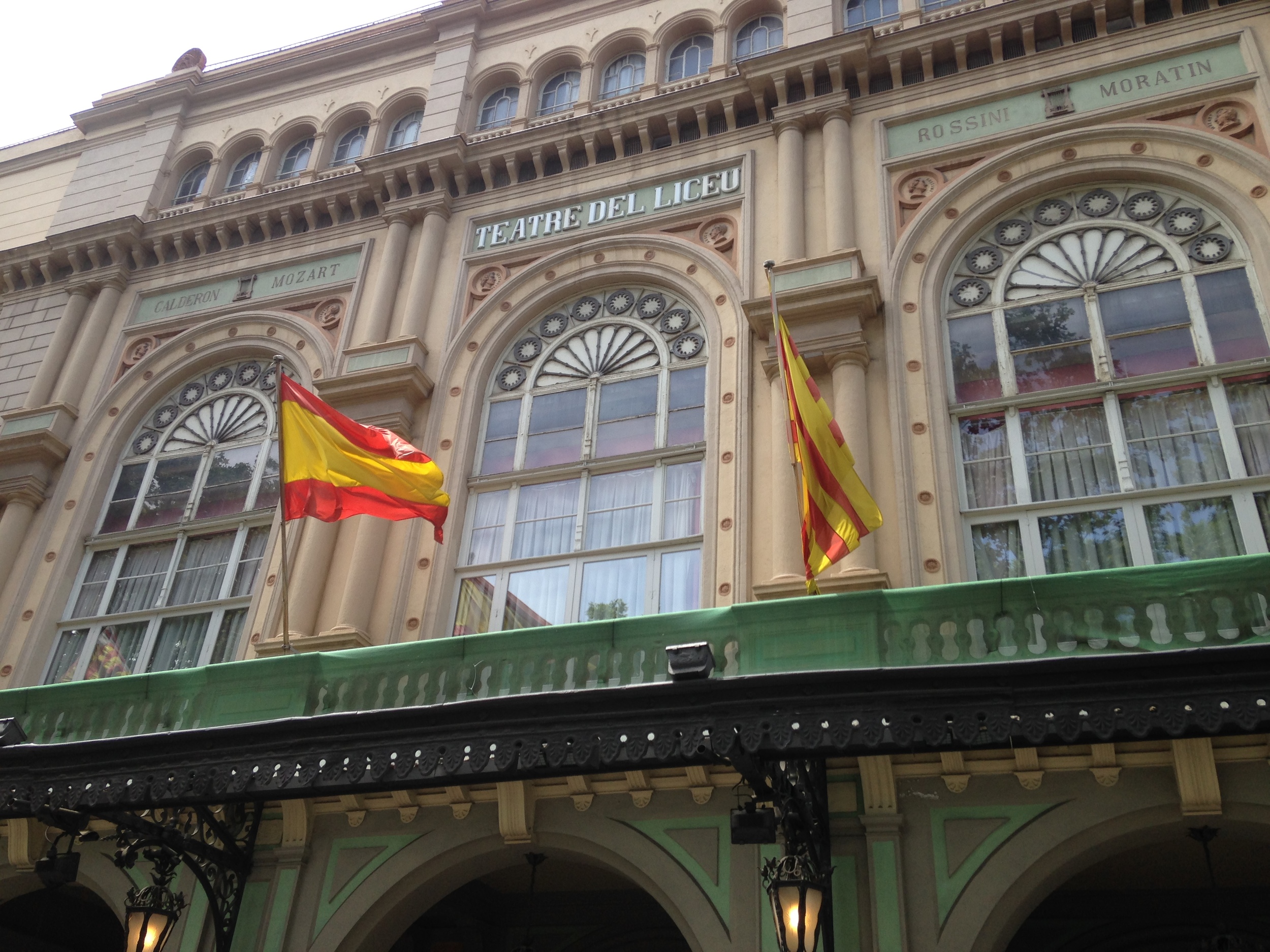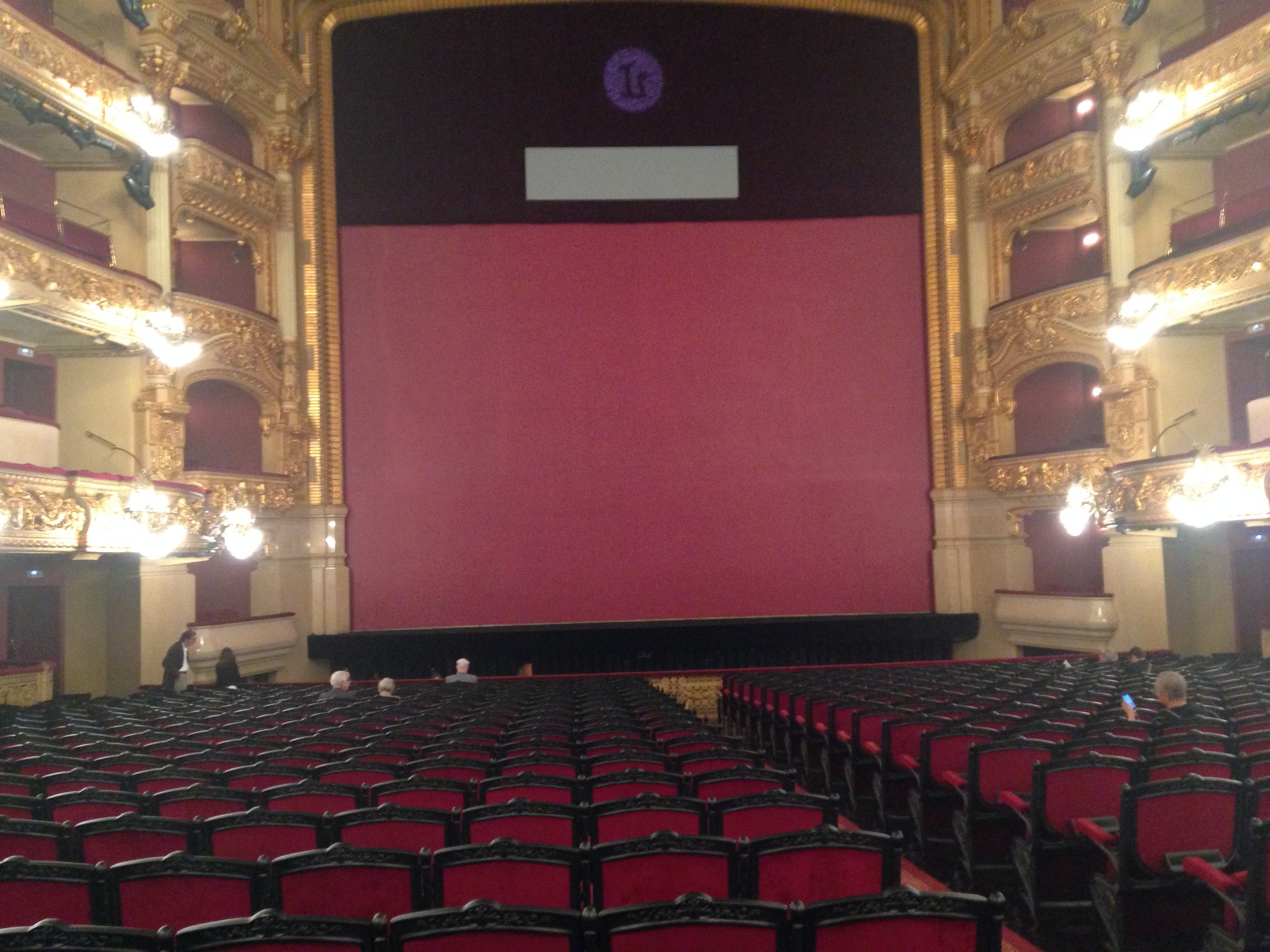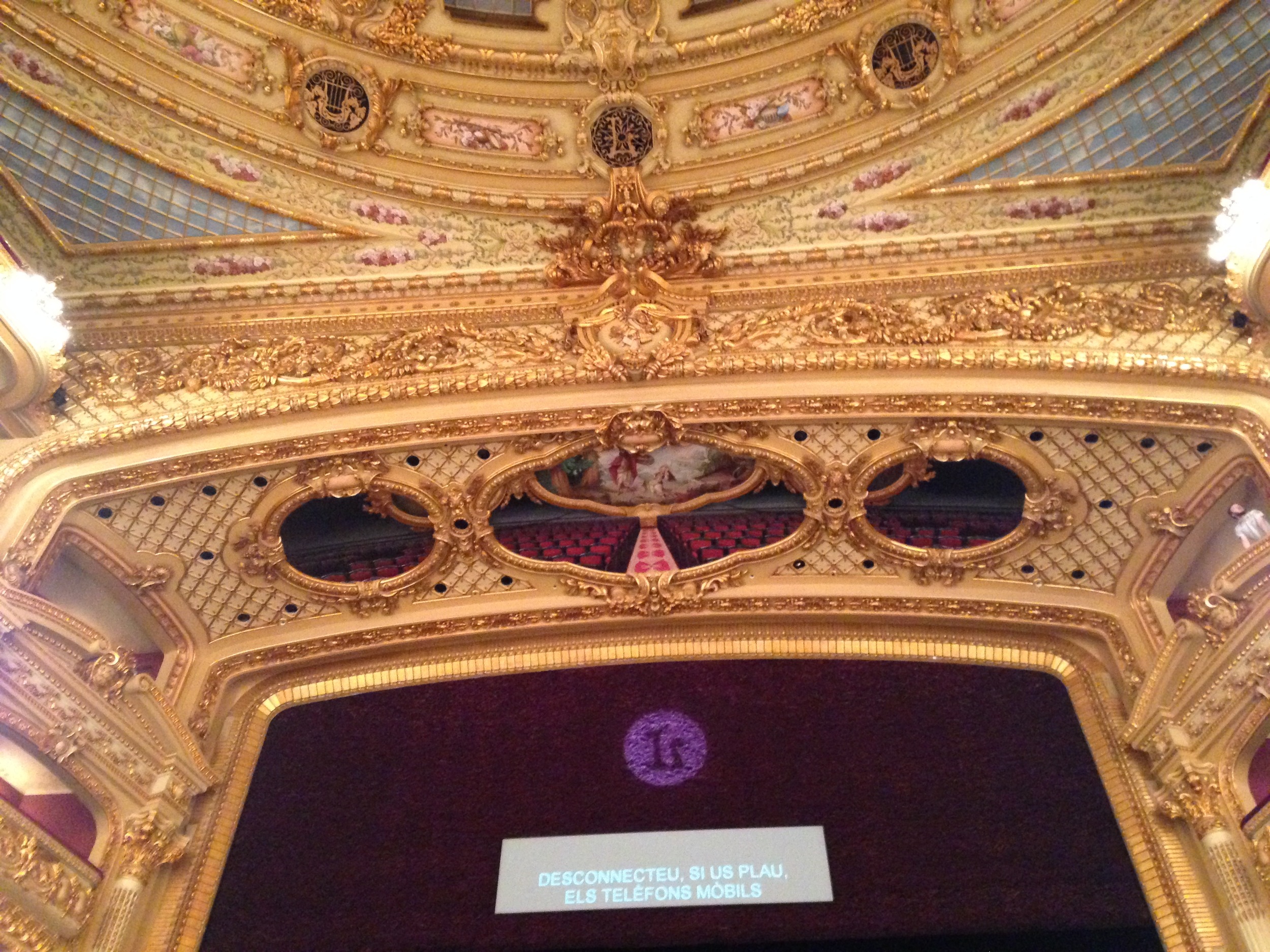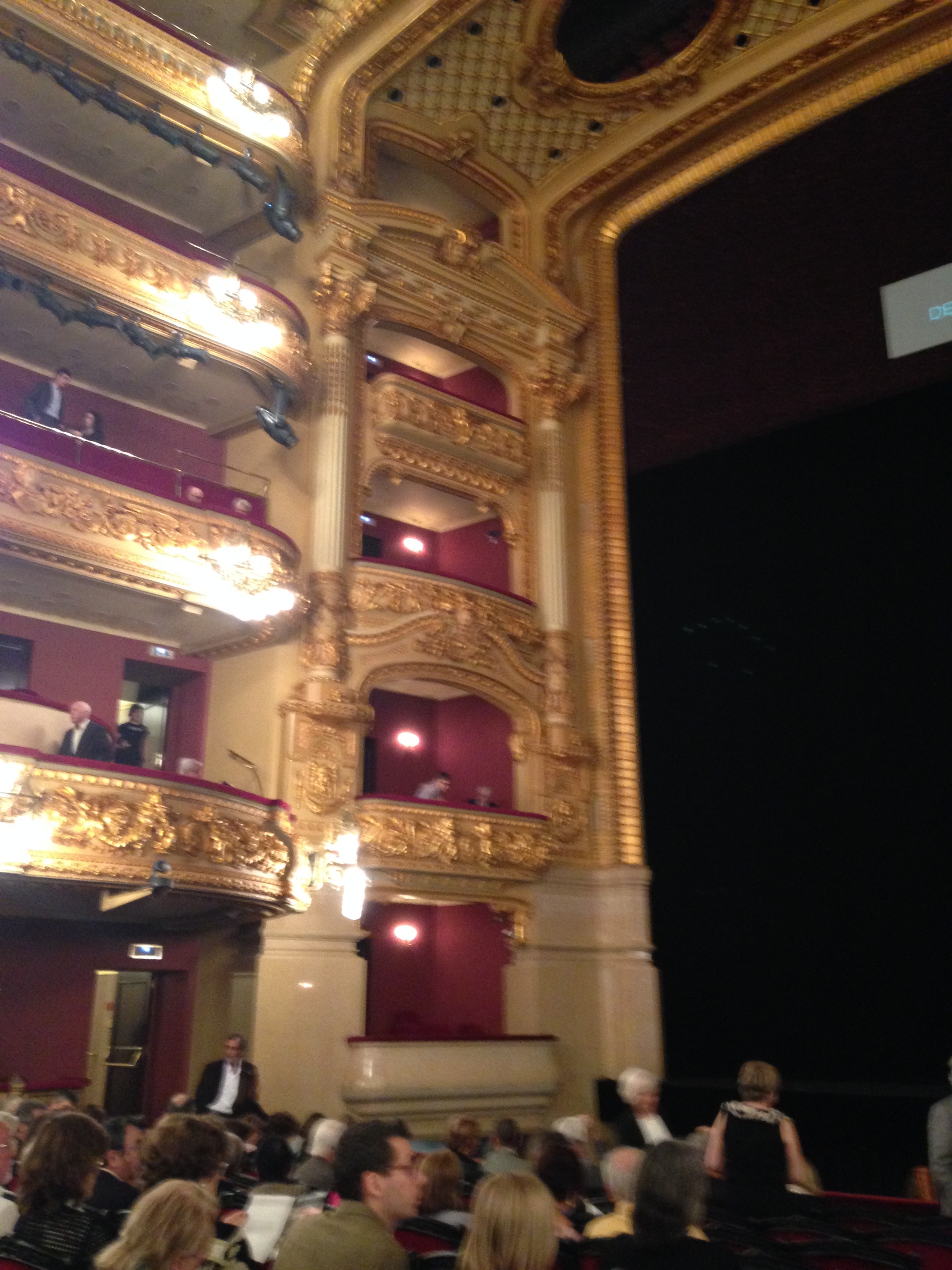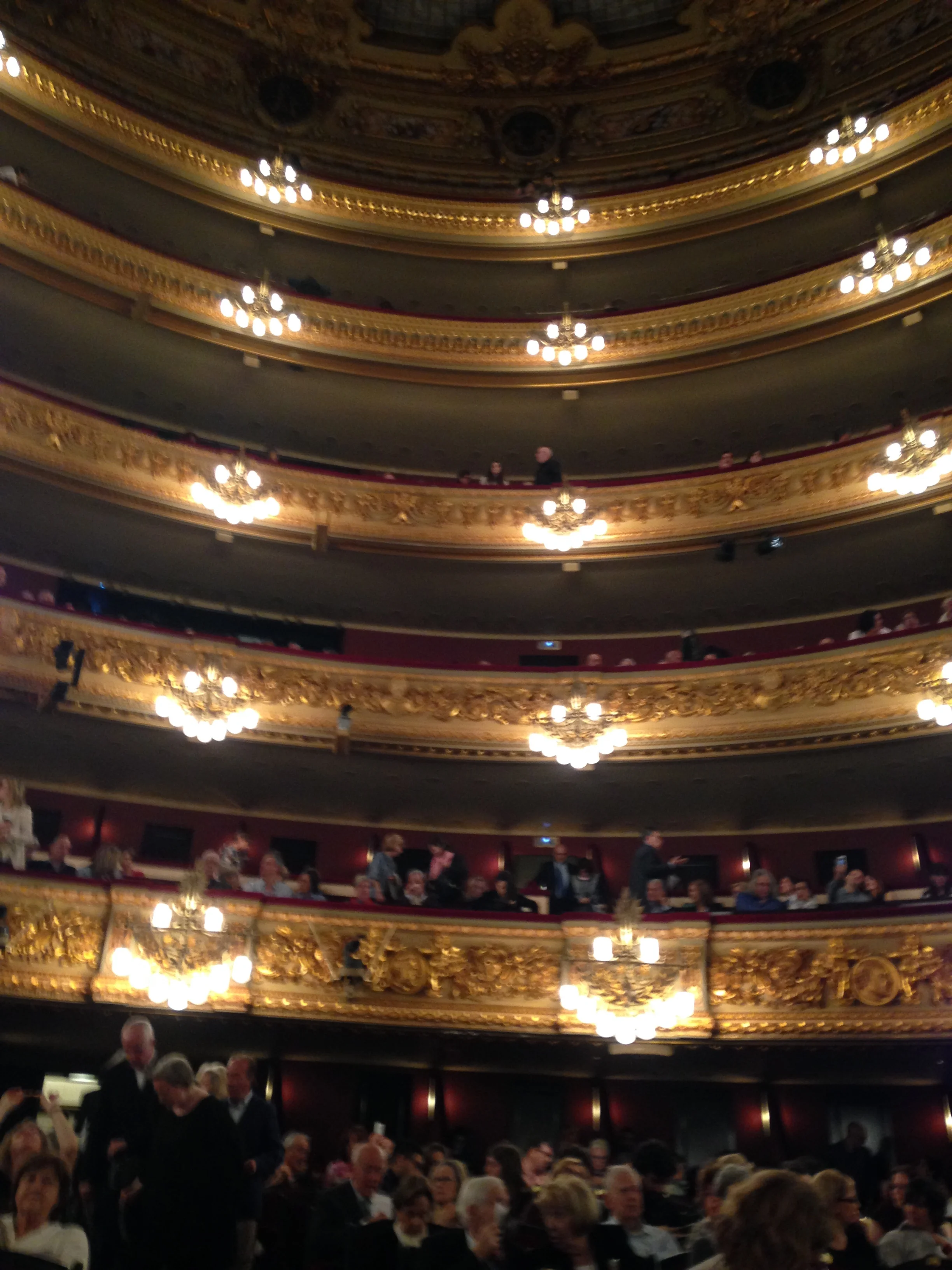Public domain - 1908 photo of Giacomo Puccini
Public domain - Original 1896 poster by Adolfo Hohenstein.
Nothing more highlights the difference between the experts and practitioners of an activity and its fans than the case of Giacomo Puccini. La Boheme is exhibit A. My reading reveals that a surprising consensus among critics, musicologists, and musicians is that Puccini is considered a very good composer, but not a great one. He is not considered a musical genius with contributions to music on the level of Wagner or Verdi, for example. Yet, among opera fans, he is considered one of the greatest composers of all, as judged by fans voting with their feet; La Boheme may be the most performed opera of all time. For me personally, La Boheme is the opera equivalent of the movie, Casablanca. Somehow, all of the elements in both works came together in this crazy world in just the right proportions and just the right construction to make a great work of art. Both of them work because they work, and just about perfectly. Was that genius or just a lucky shot, like that one photo that you take in a few thousand that you know is special? I am willing to let the experts work it out, as long as they keep performing this enchanting opera.
This report will be distorted because of my seat location relative to the stage at last night’s (Aug 5) performance, which affected my ability to see and hear the opera. More on that later, but before my tale of woe, let us examine that of La Boheme’s and the case of the missing act.
The missing act,
I have seen two live performances of La Boheme now and watched one HD video recording. I’ve enjoyed them all, including last night’s version by Wolf Trap Opera. However, I have been puzzled by the break in story line between Acts II and III. I heard someone leaving the performance expressing the same sentiment; so I investigated further. Puccini leaves Mimi and Rudolfo rapturously in love at the end of Act II; yet, begins Act III with the couple estranged. There was friction between Puccini and his librettists, Giuseppe Giocosa and Luigi Illica over the telling of the story. It turns out that the original libretto had five acts and Puccini cut one, sort of tightened it up. It would be difficult to argue now with the wisdom of that decision, but the missing act sheds some additional light on the story. In the deleted act, Musetta throws a party at which Mimi dances with a Viscount making Rudolfo jealous, revealing her to also be a woman who, like her friend, Musetta, lived by her wits and charms; Rudolfo makes reference to the Viscount in Act III. There are theories why Puccini cut the missing act. Boheme is not long by opera standards. I wonder if the decision to trim it was at least somewhat influenced by the fact he was in a race with Leoncavallo to compose an opera based on bohemian stories by Henry Murger. Leoncavallo lost the race; premiering his version of La Boheme a year later than Puccini, it had limited success and the competition created a rift between the two. However, don’t feel sorry for Leoncavallo. He is widely known for his popular opera, Pagliacci. I wish Puccini had written the music for the deleted act so we could compare versions, or maybe because I wish there was even more Puccini music out there.
My personal favorites from the WTO performance,
In general, the singers carried the night for me; each had their moments:
D'Ana Lombard as Mimi; Yongshao Yu as Rudolfo; photo by Scott Suchman; courtesy of Wolf Trap Opera 2016.
D’Ana Lombard – last night’s Mimi was excellent; this is Ms. Lombard’s second year as a Filene Young Artist; she played Rosina in last year’s Ghosts of Versaille; I always feel a little tension at an opera until I hear the lead soprano sing; if she is good, I relax and enjoy it. Ms. Lombard is very, very good. Her singing was expressive and her voice has a beautiful tone.
YongzhaoYu – I had not been especially impressed with Mr. Yu in Aria Jukebox; I am now impressed; he has a lyrical tenor voice with a beautiful tone that was perfect for the romantic Rudolfo and sang the melody with apparent ease, a pleasure to hear. He could work on facial expressions for his acting, but in the third and fourth act he seemed to loosen up and show more emotion.
Shea Owens as Schaunard; Yongshao Yu as Rodolfo; Timothy Bruno as Colline; Reginald Smith, Jr. as Marcello; photo by Scott Suchman; courtesy of Wolf Trap Opera 2016.
Reginald Smith, Jr. – a very good Marcelo with a colorful baritone, especially effective in the early playfulness with Rudolfo that got the opera off to a good start.
Shea Owens – his voice and the professionalism of his singing almost stole the show for me.
Summer Hassan – she showed the verve and fire one expects of Musetta.
Timothy Bruno – with a distinctive bass voice, his aria to his overcoat was a highlight.
Yongshao Yu as Rudolfo; D'Ana Lombard as Mimi; Shea Owens as Schaunard; Timothy Bruno as Colline; Reginald Smith, Jr. as Marcello; Summer Hassan as Musetta; photo by Scott Suchman; courtesy of Wolf Trap Opera 2016.
The key to me for La Boheme is creating the mood and sustaining it in each act, especially by establishing in Act I the rapport among the young men who have chosen the bohemian life, sacrificing comforts for the sake of art. The principal players, the minor players, and the supernumeraries in the performance all did an excellent job of this in each act. Kudos all around, not the least to the director, Paul Curran.
Chorus; photo by Scott Suchman; courtesy of Wolf Trap Opera 2016.
Once again, the average age of this opera crowd was substantially lower at the Filene Center than typically seen at opera houses. I suspect many were there for their first opera and I also suspect some young converts were made. I believe that the reason for the lack of young people, especially young families, at our opera houses has to do with the need to dress up, painful commutes, high parking prices, the formality overall, and high ticket prices. Opera at Wolf Trap is an enticing alternative. Lower the barriers and they will come.
Low points, including a lesson in seat selection,
One low point was the humidity. We can’t control the weather, but requiring the performers to wear overcoats and wraps in August at Wolf Trap is hardship duty; perspiration was in evidence on stage and in the crowd. If Wolf Trap Opera does this one again in the Filene Center, move the setting to the French West Indies and let them wear bathing suits.
A more serious low point for me personally was the acoustics from where I sat. I was two rows from the stage and on the very right side facing the stage. The Filene Center is a very large house with a very wide angle stage. When you are far right or left and very close to the stage you are almost looking directly across the stage. The view from the center stage you do not have at all. When the singers faced me I heard them clearly in their natural tone, but when they turned away, I could hear distance in their voices. On the positive side, when the singers came over my way and they were close to me, those moments were thrilling.
I think that the Filene Center is a difficult venue for opera in terms of sound anyway. There are no enclosed sides or back wall for the sound to bounce off and the lawn seats are a long way from the stage. It appeared the singers were wearing microphones, and I would guess that to reach the lawn seats amplification and speakers are needed, not traditional in opera. I don’t mean to discourage opera productions at the Filene Center; far from it. Just an observation to take into account.
The orchestra also seemed a bit distant to me. Part of the problem was that the orchestra was seated behind the stage during the performance and for two acts a huge set structure blocked them from the audience. I find myself unable to comment on the playing or sound received by a center cut of the audience. Being on the far right side created an unevenness in the sound volume in my area depending on which section of the orchestra was being emphasized. My bad for seat selection, but it was an unusual set up as well.
I also cannot comment much on the staging due to the placement of my seat. However, it seemed true to the story and was a new adaptation by Mr. Curran, moved up in time to 1917 and the end of World War II.
The Washington Post review by Grace Jean was laudatory and covers the orchestra and staging, though rather briefly.
an unfortunate development,
Compounding the undesirable effects of my seat choice was an unfortunate development. In choosing seats this time I wanted to be up close to the performers and took the closest seats available in the prime orchestra section. I knew which seats I was purchasing and the trade-offs I was making. However, to my surprise a railing for steps and a landing had been constructed on the right side of the stage directly in front of where I was sitting. It gave the set the impression that the performers were ascending apartment stairs as they entered and exited. For me, it meant I was viewing the performance through a fence with cross railings. It was frustrating the entire evening. I contacted Wolf Trap patron services the day after and received a call explaining there was internal miscommunication about the railing and an apology with an offer of restitution in the form of tickets to a future performance. Stuff happens and it was nice of Wolf Trap management to try to make amends.
Summing up,
One conclusion to offer is that at Wolf Trap’s Filene Center choose seats as close to center as you can for opera, especially for the best sound; I got a lesson in seat-manship that I hope will benefit OperaGene’s readers. A more important conclusion is that La Boheme is worth seeing, yet again and again. I can also whole-heartedly recommend seeing and hearing Wolf Trap Opera’s 2016 Filene Young Artists wherever they go in the future. What a pleasure this season has been (including The Rape of Lucretia and L'Opera Seria). I wish them all the best going forward in their careers. And I hope the Filene Center will continue to offer opera and make new opera fans, especially within the younger demographic. So, in the final analysis, I can honestly say, even with issues noted in my report, I enjoyed the performance overall and am glad I was at the opera.











